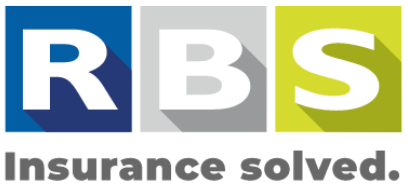Over the past year, South Africa has been hit with the worst load shedding the country has ever faced. The frequency and severity of load shedding has sparked concerns around a total grid collapse. A grid collapse is a systemic risk insurers cannot protect their clients from. To safeguard themselves, many South African insurers have added exclusionary clauses to their policies.
The current power crisis
The country’s power crisis has created a difficult set of circumstances for the insurance market.
Load shedding, as it is known, is a systemic programme of rolling power outages. These are managed per suburb, region, and province. Moreover, Eskom is responsible for announcing when these scheduled outages will occur. Eskom implemented rolling power outages to prevent a grid collapse in mid 2022. Load shedding as a practice, however, was first implemented back in 2007. Since 2022, insurers have reported a 250% rise in power-related claims. Load shedding will likely continue throughout 2023 as Eskom tries to restore infrastructure. At a national level, a Minister of Electricity has now been appointed, and a National State of Disaster declared. These are some of the governmental actions undertaken to manage the current power crisis.
Why are grid collapse clauses necessary?
As the risk of a grid collapse increases, the addition of grid collapse causes has become necessary. A total, partial or temporary failure of the electricity grid would cause significant damage. A grid collapse could cause a widespread power outage. This would affect millions of individuals and businesses. The damage resulting from such an event would be catastrophic. It’s estimated that it would take Eskom at least 1 week to restore power.
Global reinsurers, who provide financial cover to South African insurers, have been closely monitoring the power crisis. The frequency and severity of load shedding has led to heightened risk for a potential grid failure. Unfortunately, the potential for a grid failure cannot be ignored. The growing pressure from reinsurers to limit their exposure to grid failures forced the addition of grid collapse clauses for South African insurers.
How do these clauses affect insurance policies?
Load shedding is not the same as a grid collapse. Load shedding is a deliberate, controlled and scheduled reduction in the supply of electricity to parts of an electricity network. A grid collapse refers to a total, partial, or temporary failure of an electricity grid system.
While load shedding itself is not an insurable event, the damages caused by load shedding are. For example, a power surge on electrical equipment is usually covered by your insurance policy.
Damage to electrical appliances from power surges is a concern for many policyholders. With the new grid collapse clauses, cover for damage to electrical appliances caused by power surges will still be covered.
Initial remarks from insurers are somewhat unclear about the scope of coverage. This leaves room for ambiguity regarding what is included and excluded. Insurers are required to steer clear of any liability resulting from grid failures, to protect business interests.
The addition of grid collapse clauses has had an unintended consequence. Insurers will not cover any business interruption claims arising from a grid failure. If, for example, stock is damaged as a result of a grid failure, there will be no coverage for policyholders.
Individuals and businesses need to stay informed about industry changes. Updated policy exclusions are important and can have significant effects. Staying informed helps policyholders make informed decisions about their coverage. It’s a good idea to work with your private broker to understand your coverage options and identify any risks.
About RBS
Risk Benefit Solutions, better known as RBS, originated as an entrepreneurial-focused services business in 1998 and today is one of the largest fully-fledged black owned insurance brokers in South Africa and a Level One BBBEE contributor. RBS’s growth has contributed to offering clients a unique approach to risk management by positioning our skilled resources as an extension of our client’s risk management team. The company covers a broad spectrum of services, including Insurance Broking, Risk Management, Commercial and Corporate Risk Advisors, Employee Benefit Consulting, Health Insurance, Wealth Management, Asset Management and Corporate Vehicle Hire Services.

